Starting a career at the Organization for Security and Cooperation in Europe (OSCE) can be a competitive process. Given the fact that this is the world’s largest regional security organization, the competition to secure a job with the organization is strong. Good communication skills, collaborative abilities, and planning and analysis capacity as well as decision-making and initiative-taking are the core competencies described on the employment with the OSCE work in real life. Check out some valuable tips from current or former OSCE employees.
Key Takeaways:
- An average of 3,500 people work for the OSCE at more than 20 different duty stations.
- The key requirements to secure a job at OSCE include a relevant academic background, strong interpersonal and diplomatic skills, the ability to work in a multicultural environment, emotional intelligence, proficiency in foreign languages, and a passion for the field.
- To stand out from the competition when applying for OSCE positions, the application should be tailored for each role and candidates should be prepared to provide examples of skills and experience in competency-based interviews.
- Working for the OSCE offers unique opportunities such as international networking and the development of interpersonal and diplomatic skills.
- It can also involve challenges related to being located in security-risk areas and a great deal of arduous work.
DevelopmentAid: Which major skills and requirements are necessary to start a career at OSCE?
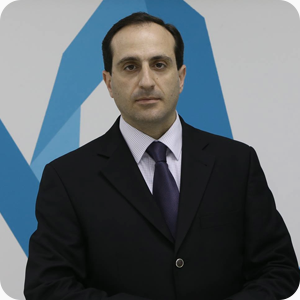
“OSCE is a unique organization with a broad mandate dealing with security-related issues in different dimensions. Unity and indivisibility of politico-military, economic and ecological as well as human dimensions are at the core of OSCE’s philosophy as an organization. To become a member of the OSCE family, the applicant needs to employ systemic thinking to recognize a big picture and all the details within it. A relevant academic background, strong interpersonal and diplomatic skills, the ability to work in multi-cultural environment, vividly expressed emotional intelligence, and good command of foreign languages are the key requirements to enjoy success while being employed by the OSCE.”
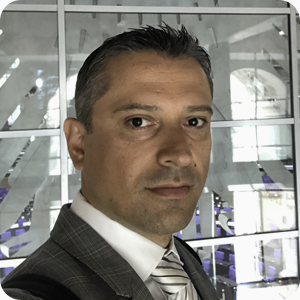
“Embarking on a career with the OSCE requires more than just a passing interest in international relations. It calls for a genuine passion, a fire that drives one to understand and engage with the complexities of global diplomacy. Proficiency in languages, particularly English and the local languages relevant to the region of interest, is fundamental. It’s the bridge that allows effective communication in a multilateral context, a crucial skill set in this field.”
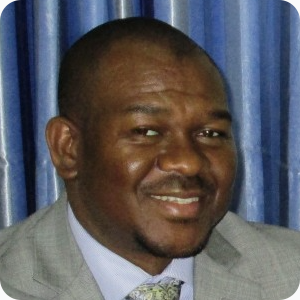
“Passion is a major skill. We know that Sunday evening is often the time of the week when we feel a kind of inexplicable sadness, a melancholy before the new week has even begun. It’s a common feeling that can be attributed to the prospect of returning to work or school the next morning. But what if instead, we couldn’t wait to get up the next day to perform our work and fulfill a deep passion? For years, I lived the Sunday night blues until the day I started a career promoting democracy and good governance. To begin a career with OSCE, it is important to have all these generic competencies – a degree in social science, international relations, or a related field, excellent analytical and communication skills, the ability to work under pressure and to tight deadlines, strong organizational skills, and the ability to work in a team. But the most important thing, in my opinion, is to find that passion that gives deep sense to the work we do. When I found it, the melancholy of Sunday evening gave way to the excitement of being able to help and make concrete improvements to people’s lives. Every day is a new challenge, and I feel proud to be working for a cause that is so meaningful and important for many people.”

“First of all, there are differences between pursuing an OSCE career as an international staff member and as locally employed field staff. I will focus on the former which has been my experience. The most important requirements are an academic background in political science/international relations human rights or a related field, and possibly previous experience working in an international organization or a national diplomatic service. For entry-level junior positions, the academic background may be sufficient, perhaps in combination with one or more internships at the international level. It goes without saying that professional-level knowledge of English is mandatory, possibly complemented by another official OSCE language (for positions in former-Soviet countries, Russian language is mandatory or a definitive asset). In addition, a keen interest in and knowledge of European security and cooperation matters is fundamental, in particular with regard to East-West European relations in the post-Cold War period. For many positions, knowledge of human rights, conflict management, democratization processes, negotiation, and project management are essential or very much required.”
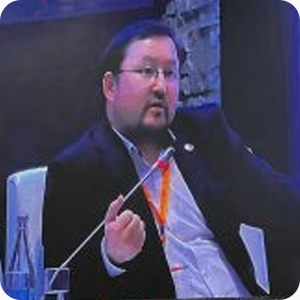
“With a strong command of English, a solid background in assisting senior managers and management teams, an open-minded approach to daily work, the ability to work extra hours, and broad experience of living in different countries, I knew I was a perfect match for the position I was applying for.”
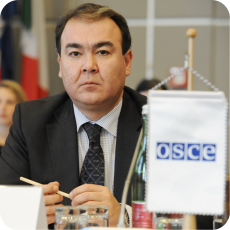
“The skills and requirements necessary to start a career with the Organization for Security and Cooperation in Europe (OSCE) can vary depending on the specific position. However, some common skills that may be beneficial include strong analytical and research skills, excellent communication and interpersonal skills, fluency in multiple languages (particularly English and the languages spoken in the region of interest), and knowledge of international relations, conflict resolution, human rights, and/or related fields. Additionally, a strong understanding of the OSCE’s mission, principles, and operations is important.”

“Every vacancy is quite specific, and there are must-have and nice-to-have requirements. Most of the time, a graduate degree in an area relevant to the organisation’s mandate and several years of experience in practice area as well as soft skills and proficiency in OSCE languages. Make sure to understand day-to-day responsibilities and scope of work and study well OSCE competency framework to help you identify whether you’re a suitable candidate and/or what should you work on to become one.”
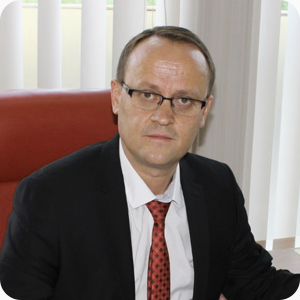
“Diplomacy, international cooperation, peace-building, mediation, rule of law, gender mainstreaming, local government, democratization, and similar competencies.”
DevelopmentAid: What are the challenges to be faced when applying for an OSCE position?

“While applying for OSCE’s vacant position as a secondee (not in own country field mission), the candidate must first get approval from their country’s Ministry of Foreign Affairs which is not always possible.”

“The OSCE is an esteemed organization, attracting a pool of highly qualified professionals, often with extensive diplomatic backgrounds from the participating States. This creates a competitive environment, making it imperative for applicants to distinguish themselves. Networking is a vital aspect that can’t be emphasized enough. Establishing connections within the field not only provides valuable insights but can also open doors that might otherwise remain closed.”

“When applying for an OSCE position, there can be several challenges to consider. The competition for positions can be fierce, as many individuals with diverse backgrounds and experiences may be vying for the same opportunities. Additionally, the selection process can be thorough and rigorous, involving multiple stages such as written tests, interviews, and reference checks. It is important to be well-prepared and demonstrate how your skills and experiences align with the specific requirements of the position.”

“Certainly a number of competitors. It is a highly desirable working environment and competition is wild. Additionally, for international seconded positions what citizenship you have is also important, since not all Member States can invest equally which is reflected into the number of positions they can support.”
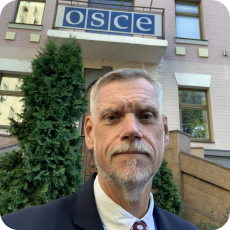
“Challenges when applying is to interpret the job description so that applications are made towards jobs that fit your background and experiences. Trying to find as many keywords in the job description that matches helps a lot. Just applying to a lot of posts without a clear idea of what is expected of you isn’t helpful.”

“OSCE positions are highly competitive, so it can be a challenge to stand out from a pool of highly qualified candidates. You need to apply relentlessly and tailor your resume and cover letter to each position you qualify for. Perseverance is key. When I started writing my first resume, I made some mistakes. For example, I put a job I’d done in the field during my studies way down on the resume because I didn’t think it was very important, whereas I put a lot of emphasis on my academic qualifications. But when a career professional looked at my resume, he advised me to highlight this position which seemed insignificant to me because I’d only worked on it for two weeks and earned barely 50 euros. After a few tweaks, the result was amazing and my resume had become much more attractive. Any work experience, no matter how short or modest, can add value to your resume. It’s not enough to have the skills that match the job requirements. It’s crucial to demonstrate these to the recruiter. This requires a good CV strategy. Asking experts for advice can help to choose the most important information to highlight in a CV. Their input can help to strategize and demonstrate the organizational skills that recruiters are looking for. Being strategic in resume writing can increase anyone’s chances of attracting the attention of employers.”
See also: Remember the ‘Cover Letter’? Here’s why it is important

“As most OSCE positions, especially in the field, are seconded positions, all candidates must be supported and presented by their national diplomatic service. Depending on the country (in the OSCE, they are called Participating States), the process is handled by either the Ministry of Foreign Affairs (OSCE-dedicated offices or units) or specific agencies dedicated to such selections. Candidates need to check directly with their national foreign services. This is also clearly indicated on the OSCE job vacancies page. This may be a challenge, as some countries sometimes select their candidates on the basis of political criteria rather than actual merits of the candidates’ profiles. Another challenge may be the way the position is finally awarded by the OSCE selection panel: other criteria than the candidates’ profiles may come into play to favor one candidate over another, i.e., political importance of the Participating State of origin, gender, age or compatibility with the composition of the mission or office for which the candidate has applied.”

“Competition was stiff in my case, but it’s always like this, and good preparation of application documents and for an interview is the key to successful performance on the main day.”

“As mentioned, study well the vacancy and OSCE competency framework. Think of examples when you demonstrated those skills and try to find out as much as possible about the department you are applying to work in. On the basis of the work they do and ongoing projects, try to infer what they will be looking for in an ideal candidate.”

“To prepare for an OSCE interview, it is crucial to research the organization extensively. Familiarize yourself with its mandate, programs, and recent initiatives. Additionally, review the job description and requirements to understand how your skills and experiences align with what they are seeking. Prepare specific examples from your past experiences that demonstrate relevant skills, such as conflict resolution, diplomacy, or project management. It can also be helpful to practice answering common interview questions, both to articulate your experiences and skills effectively and to gain confidence.”

“Challenges include stiff competition from all over the world, lack of specific knowledge for the mission where the application is submitted, lack of knowledge of secondment system, etc.”
DevelopmentAid: How do you prepare for an interview with the OSCE recruitment department?

“In general, the application process has two phases: a written test and an oral interview. For the written part, the applicant needs to be as precise as possible when answering the questions. The interview is usually competency-based, meaning that the applicant needs to be ready to reveal their knowledge, skills, and abilities to solve issues while dealing with different situations. Being familiar with OSCE history and its evolution, a detailed knowledge of its mandate and the activities of the selected dimension as well as its thematic connection with other areas, knowledge of project management fundamentals, being ready to display competencies in different situations lie at the core of preparation for the interview.”

“Preparing for an OSCE interview is a multifaceted process. It begins with familiarizing oneself with the organization’s mission, values, and ongoing initiatives. This knowledge lays the foundation for framing one’s own aspirations and contributions within the broader context of the OSCE’s work. The selection process typically includes video interviews like SONRU, designed to assess both technical competence and soft skills. Following this, there are written assessments that delve deeper into specific areas of expertise. For shortlisted candidates, a panel interview is the final stage. Here, it’s crucial to showcase not only one’s qualifications but also a clear vision for the position and a genuine commitment to the OSCE’s mission.”

“Some common mistakes that young professionals make when applying for an OSCE position include not tailoring their application materials to the specific position or failing to demonstrate a strong understanding of the organization and its work. It is important to customize your resume and cover letter to highlight relevant experiences and skills. Additionally, failing to adequately prepare for the interview by not researching the organization or not practicing interview questions can hinder your chances of success.”

“Probably not tailoring their preparation for the position enough. Interview and written assessments are hardly ever generic and prepping as if was selection process in a random company won’t work. ”

“There are some interview questions that are frankly irritating. “What are your greatest strengths?” “What are your weaknesses?” And I often say to myself that my weakness is finding my weaknesses. Well! Instead of getting angry and recriminating every time we have an interview, why not prepare instead? There are some good interview coaches on the internet who explain very well the reasoning behind each question and the attitude to take to each question. The other issue with an interview is that most of the interviewers tend to conduct it in English. This is unfair. Yes, I know, but that’s how it is. Why don’t you work on improving your English? To prepare for an OSCE interview, it’s important to conduct in-depth research into the organization, understand the job requirements, and align your skills and experience with the job description. It’s also essential to be prepared to provide concrete examples of your skills and experience in situations similar to those in the job requirements…. most of the time in English. Even if you’re a native English speaker, you’ll need to be prepared to deal with interviewing jargon.”

“Preparing for an interview has to encompass knowledge on the interview process – what kind of questions will be asked and how they are supposed to be answered will show the panel your level of research to it. Then of course, select a couple of real-life examples according to the STAR model so that the answer is to the point.”

“I would suggest candidates have a general knowledge about the origin and the basic principles guiding the action of the OSCE. They should be familiar with basic OSCE documents such as the Helsinki Final Act, the Paris Charter for a New Europe, the Istanbul Charter for European Security, and the Astana Declaration. Also, general knowledge about how decision-making works in the OSCE is useful. A page on the OSCE website is dedicated to these.”

“I read a lot about OSCE’s role at the international and national level. Knowing what OSCE is doing in your specific region and in the field of the position you are applying to will help a lot during the interview. Make sure you bring successful performances from previous job/s to convince the panel that you are able to cope with future challenges if you are selected.”

“Read the OSCE manuals carefully for interview preparation and during the interview focus on competency-based interview preparations.”
DevelopmentAid: What are some mistakes that young professionals make when applying for an OSCE position?

“When applying for the position it is always necessary to remember the mandate, main dimensions and “modus operandi” of the organization.”

“One common misconception is that a position in the political realm in Vienna serves as the ideal starting point. While these roles are undoubtedly prestigious, field operations often offer more accessible entry points. These assignments allow young professionals to immerse themselves directly in the OSCE’s practical work, providing invaluable hands-on experience.”

“Working for the OSCE can come with both challenges and benefits. Some of the main challenges include the demanding nature of the work, which often involves operating in complex political and security environments. The expectations for professionalism, integrity, and impartiality can be high. Additionally, the work may require frequent travel and working in different cultural contexts. However, there are also significant benefits to working for the OSCE. You have the opportunity to contribute to international peace, security, and stability. The work can be rewarding and impactful, allowing you to make a difference in areas such as conflict prevention, human rights, and democratization. The OSCE also provides opportunities for professional development and networking within a diverse and international community.”

“It is a fast-paced environment that can be challenging for certain types of personalities. It can get really bureaucratic and process-driven quite often as well, which is the case with many other IOs. On the other hand, working for OSCE is a really rewarding experience and it comes with great exposure to the world of international affairs, you get to work with a lot of people from different backgrounds which helps you grow on a day-to-day basis.”

“I’m not sure what mistakes young professionals make, but I can tell you what mistakes I did. When a friend of mine helped me write my first cover letter and CV, I started sending these out to every job advertised. And the more rejections I got, the more I sent out because I learned the lesson of persistence. I thought the more I sent out, the better my chances of getting an interview. At my wit’s end, I sought the advice of a career expert who explained step-by-step how to tailor my CV and cover letter to the specific requirements and relevant experience of each job. With his help, I prepared my CV and tailored the cover letter for a programme manager/unit head position, and to my surprise, by clearly addressing the merit criteria and significant experience, I secured an interview. When applying for a position within the OSCE, young professionals should avoid making these common mistakes, such as failing to thoroughly research the organization and the position, to tailor their application to the specific requirements of the position, and to adequately demonstrate their skills and experience.”

“Precisely failing to prepare replies for competence-based questions and coming up with examples from their experiences. Some candidates do not highlight their skills properly in cover letters when submitting their applications. Some young professionals overlook the fact that the OSCE is a non-career organization, hence permanence in one single post is limited to 7 years. Also, any one person cannot be employed by the OSCE for more than 10 years in total.”

“A resume with irrelevant information can ruin the first impression for a future employer. It must be neat and straight to the point, providing the most relevant information to increase your chances of being invited to an interview. Your dress code and confident answers to each question, without rambling or wandering in your thoughts, will convince the recruiter that you are the right person for the job.”

“Their approach often involves taking knowledge gained during their studies for granted, focusing solely on academic learning. Instead, it should place significant emphasis on sharing experiences, providing evidence-based feedback, and so on.”
DevelopmentAid: What are the main challenges and benefits of working for the OSCE?

“OSCE is a unique platform for countries’ dialogue. OSCE’s strongest advantage is that nearly all decisions are taken by consensus, meaning that the voice of a “small” country (from a geopolitical point of view) will be heard and considered. At the same time, this modality is the weakest point of the OSCE since many important initiatives from a security point of view could be blocked because of the absence of consensus. One always needs to remember that the OSCE is a political organization, and the member countries make political commitments meaning that in some situations stemming from political interest of the country/ies, the real action can be different from what has been agreed. This fact might create a sense of disappointment but meanwhile, it paves the way for diplomatic actions to find a balance between the interests of different countries and to come up with possible solutions. The OSCE offers fantastic opportunities for network building, improving interpersonal and diplomatic skills. The OSCE makes you flexible while dealing with non-standard situations. The OSCE is not a donor organization, it conducts projects in field missions without putting any preconditions to the county of presence which means that the OSCE as a rule establishes partnership relationships with the host country leadership and provides targeted support in reform processes.”

“In today’s geopolitical landscape, marked notably by the ongoing conflict in Ukraine, navigating complex political realities can be arduous. However, the OSCE offers an unparalleled opportunity to learn multilateral diplomacy in action. The exposure to diverse perspectives, the chance to contribute to peace and security efforts, and the networking opportunities with professionals from around the world are invaluable assets. This dynamic environment is the best school to cultivate the skills and insights needed to excel in the field of international relations.”

“Main challenges would be the need to quickly grasp the key issues that influence your work and communicate effectively with other stakeholders. Benefits would be to work in a political international environment and creating a wide network of colleagues that can teach and support you.”

“In 2014 I was deployed to Ukraine. After passing through countless checkpoints, I couldn’t help but feel a sense of trepidation creeping through my veins. All around me, austere-looking soldiers were carrying their weapons with a sense of solemn purpose. I finally arrived at Maidan Square. I could imagine the harrowing sights and sounds of conflict that might have unfolded in the very spot where I stood. The vivid imagery of destruction and chaos that flooded my mind was enough to send shivers down my spine. The air around me was thick with a palpable sense of insecurity and uncertainty that made me realize the gravity of the responsibility that lay ahead, and I knew that my mission as a member of the OSCE team had just begun. Though working for the OSCE can present some challenges, such as operating in a politically sensitive environment and sometimes navigating through the dangers that lurk around every corner, the potential to help prevent conflicts, uphold human rights, and promote good governance across multiple countries is simply too vast to ignore. When the weight of responsibility feels heavy, yet the potential for positive impact is great. When your actions can make a difference in the lives of others, making a small contribution is enough to quell even the most persistent Sunday night melancholy.”

“The main challenges are related to the need to often deploy to and work in unstable, sometimes developing countries (for field positions). Some OSCE postings are non-family and that could be an additional challenge. Another challenge is how salaries for OSCE positions are calculated. For mission posts, the OSCE provides daily pay, a per diem, which is based on the cost of living in the country. In addition, some (but not all) OSCE Participating States add their contribution to the per diem, which is normally based on the seniority of the position: the higher the level, the higher the contribution to the salary. This means an inequality of salary among different countries of origin, even for the same level of posting. In terms of substance matters, some OSCE positions can be extremely challenging politically or security-wise. For instance, my experience with the Special Monitoring Mission to Ukraine involved substantial political challenges and hardships in terms of security due to the deployment in the conflict zone of the Donbas, but that was a rather unique case.”

“Working at the OSCE can be a pleasant experience, but it can also become monotonous due to the repetition of similar procedures. However, the prospect of future opportunities for career growth within OSCE missions elsewhere is truly rewarding.”

“The benefits are directly connected to career development, and having experience with the OSCE is a valuable addition to one’s CV. The learning opportunities within the organization are substantial.”
Securing positions at the OSCE can be a highly competitive and challenging process. Applying for a position within the OSCE typically involves a series of steps to research the organization, showcase your qualifications and perform well at an interview. With the DevelopmentAid Individual Professional Membership, you will not miss a single opportunity as you will have full access to all the OSCE’s jobs, tenders and grants for individuals and other useful information.

